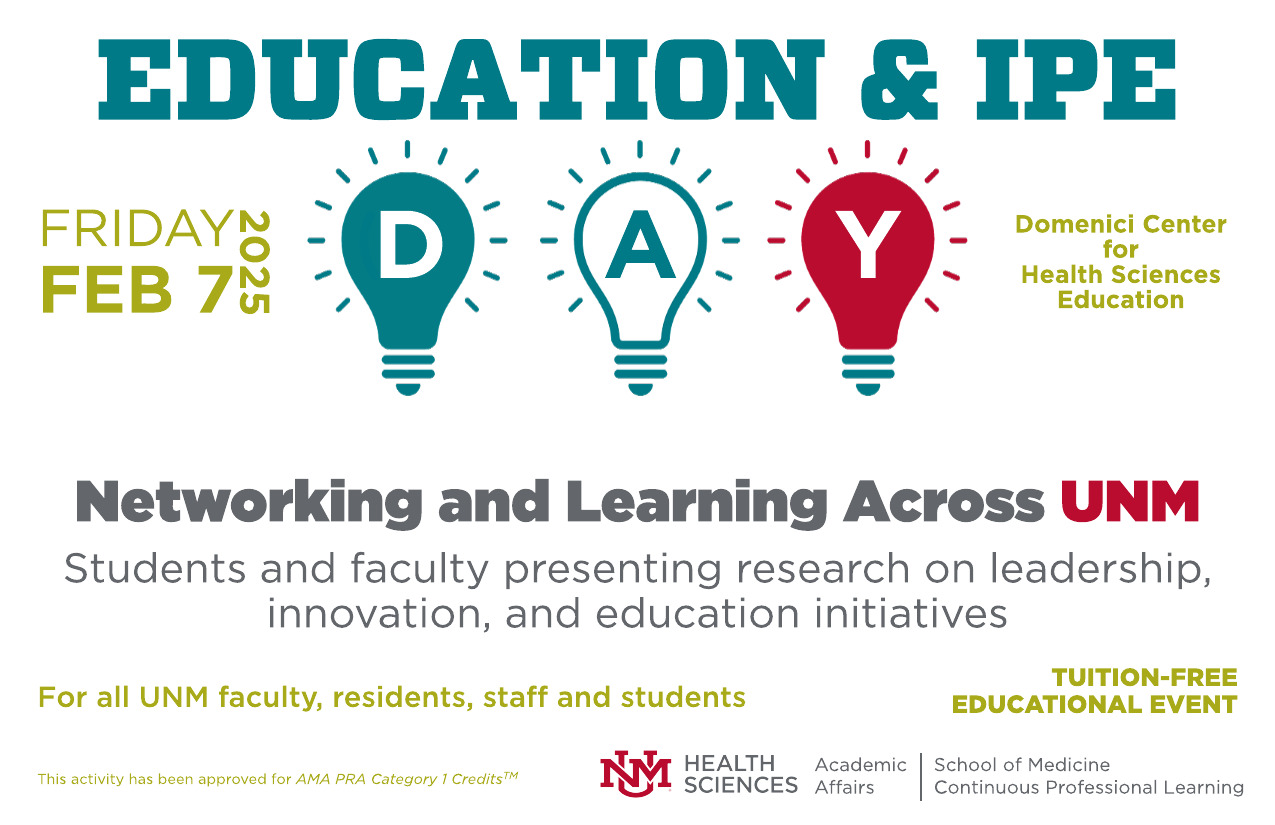
HSC Education Days
Document Type
Poster
Publication Date
1-13-2021
Abstract
The long-term effects of trauma are pervasive among patients, manifesting as chronic conditions, maladaptive behaviors, and non-adherence to care. One way to improve health outcomes is through implementation of universal trauma-informed care (TIC). TIC is a strengths-based care delivery approach focused on recovery and healing through safe, collaborative relationships between patients and healthcare providers. Awareness of TIC is essential for practicing clinicians. TIC is often incorporated into discussions related to OB/GYN; however, all specialties care for patients who have experienced trauma. The UNM medical school curriculum does not include focused TIC content for Phase I students. Medical students should develop the communication and physical exam skills early in their education to identify and more effectively respond to patients who have experienced trauma. We designed a case-based session for second-year medical students consisting of a narrated PowerPoint overview of TIC as prework, two cases, and one short-answer question on their Doctoring final exam. Cases described two patient scenarios with questions assessing the definition of TIC, the importance of using a TIC-informed approach with patients, and describing how TIC can be used in a patient encounter. On the exam, students indicated this session helped them understand parallels between the RESPECT model and TIC, how TIC can be used to improve their skills, and further empower patients. We plan to develop a longitudinal TIC curriculum that spans Phases I-III and involves the use of standardized patients to practice skill-learning in a more realistic setting. Early practice of these skills will help medical students feel more comfortable caring for patients with a history of trauma, improve patient experiences in the clinical setting, and ultimately help patients have better health outcomes.
Recommended Citation
Ice, Anusara Carolyn; Heather Metcalf; and Rachel Mnuk. "Early Introduction of Trauma-Informed Care in a Medical School Curriculum." (2021). https://digitalrepository.unm.edu/hsc_ed_day/75

Comments
Poster presentation program - Including round tables by topics: Community and Cultural Competency.
This poster was presented during the University of New Mexico Health Sciences Center Education Days.